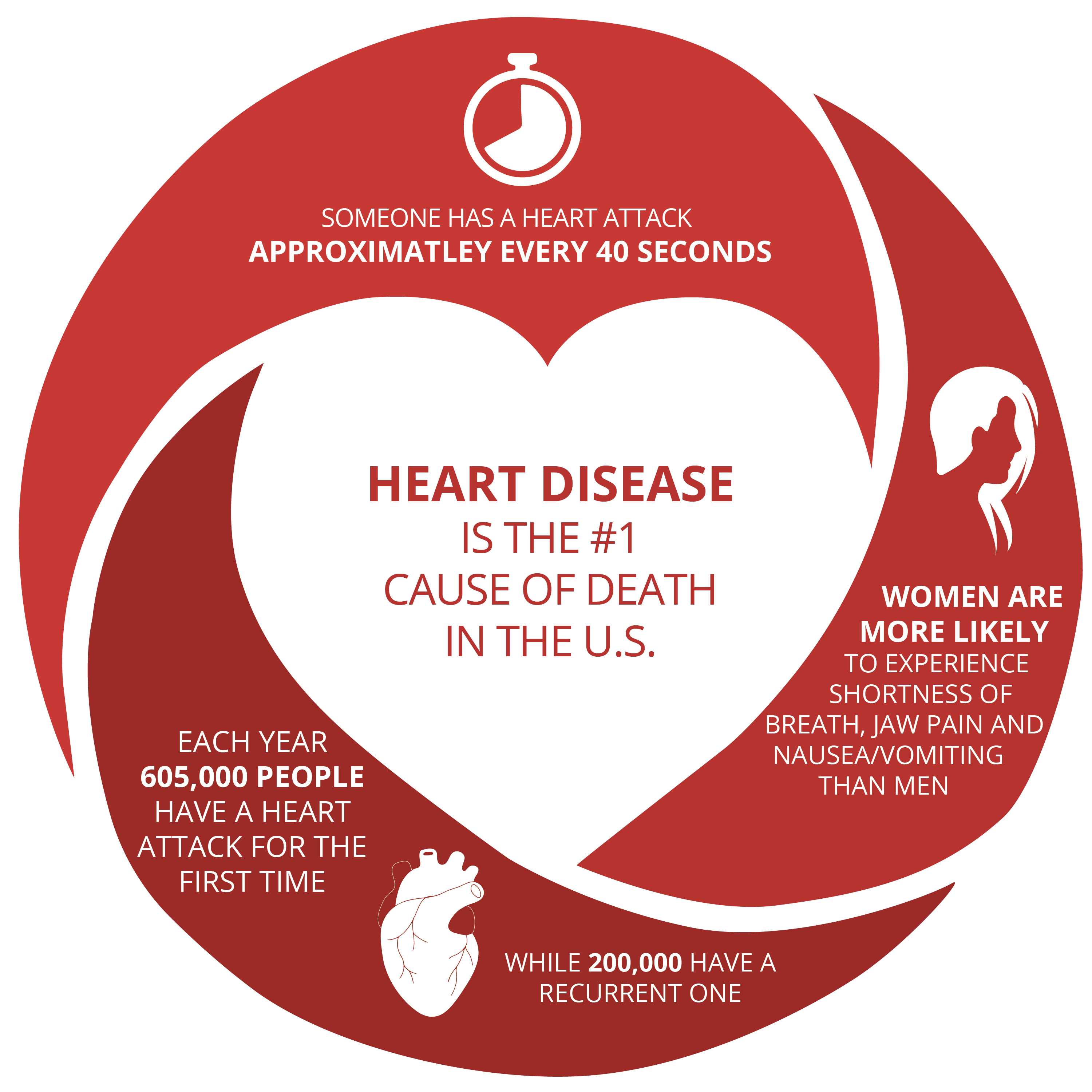Since 1964, the United States has recognized American Heart Month in February as a time to bring awareness to heart disease. According to the American Heart Association, heart disease is the leading cause of death for both men and women in the U.S.
Many people are either unaware they have suffered a heart attack or just ignore the signs as they’re experiencing one. So how do you know if what you’re experiencing is a heart attack and when should you reach out for help?
Some heart attacks are sudden and intense. But most start slowly, with mild pain or discomfort. Pay attention to your body and call 911 if you experience any of the following warning signs:
- Chest discomfort. One of the most obvious symptoms is discomfort in the center of the chest that lasts a few minutes – or goes away and returns. It’s usually described as uncomfortable pressure, squeezing, fullness or pain.
- Discomfort in other areas of the upper body. In addition to your chest, discomfort in other areas of the upper body including one or both arms, the back, neck, jaw or stomach are common.
- Shortness of breath. This can happen with or without chest pain.
- Other signs. Other possible signs include lightheadedness, nausea, or breaking out in a cold sweat for no apparent reason.
Health conditions, your lifestyle, and your age and family history can increase your risk for heart disease. While some of these cannot be controlled, such as age or family history, you can take steps to lower your risk by changing the factors you can control. Ways to reduce your risk and help improve your heart health include:
- Annual visits to your Primary Care Physician
- Regular physical activity (at least 150 minutes a week)
- Control your blood pressure
- Eat a healthy diet
- Keep your cholesterol in check
- Limit alcohol
- Sleep 7 hours or more every night
- Quit smoking and avoid being around second-hand smoke
- Manage stress
It’s also recommended you maintain a healthy weight and eat foods low in saturated and trans fats while avoiding foods high in sodium and added sugars. If you have been diagnosed with diabetes, it’s very important to take your prescribed medication while monitoring your blood sugar levels.
February is a great reminder of the importance of heart health, ways to prevent heart disease and increase awareness of its effects. Southwoods Cardiology is committed to providing high quality, comprehensive care. Southwoods’ cardiologists work with your primary care physician to ensure that care is coordinated. If you are in need of cardiovascular care and are interested in an evaluation, contact your primary care physician for a referral.
If you don’t have a Primary Care Physician or it’s been a while since your last regular check-up, Southwoods Health has a network of Primary Care Physicians with offices conveniently located around the Mahoning Valley. Visit Southwoods Primary Care to schedule an appointment today.
Heart Disease Stats & Facts

Infographic (source: American Heart Association)




